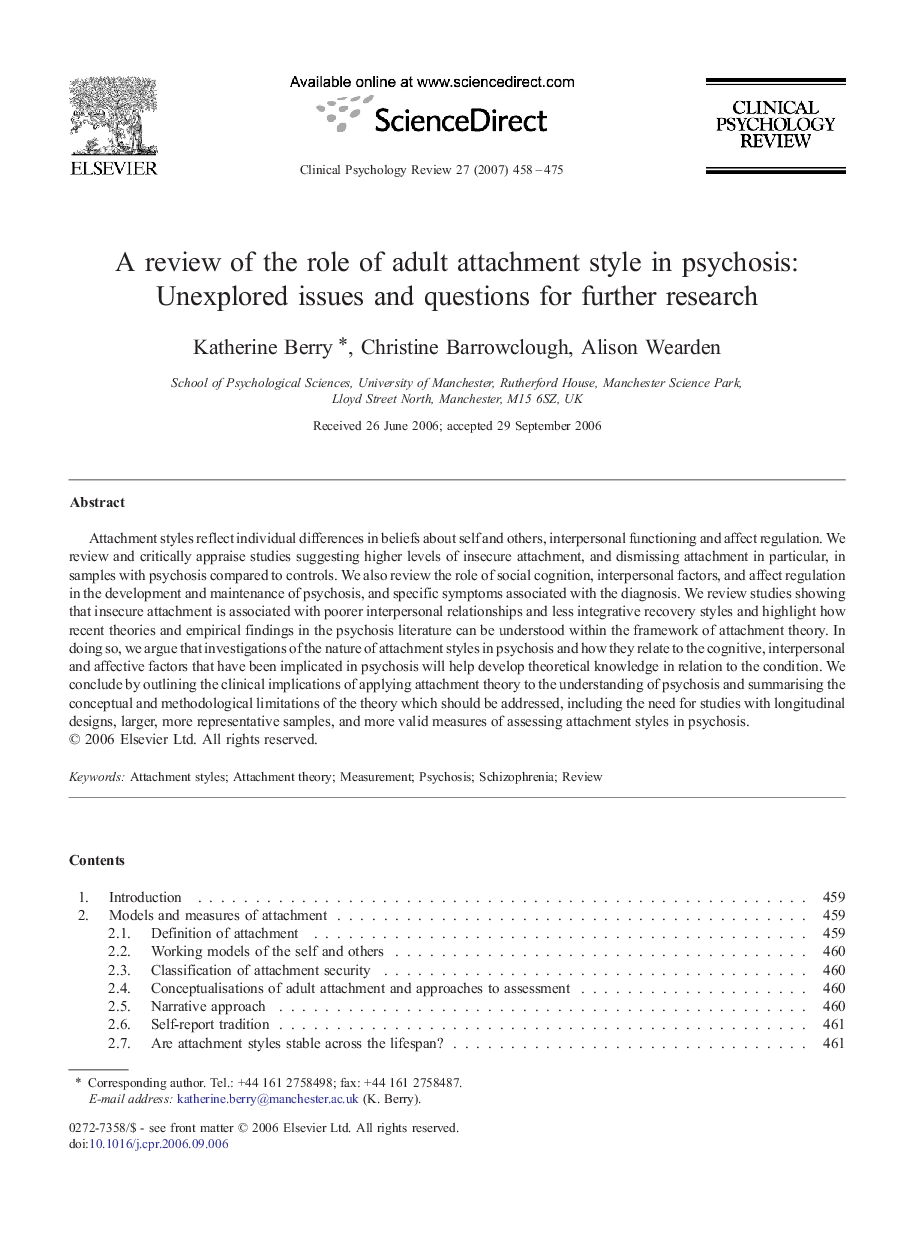| Article ID | Journal | Published Year | Pages | File Type |
|---|---|---|---|---|
| 904204 | Clinical Psychology Review | 2007 | 18 Pages |
Attachment styles reflect individual differences in beliefs about self and others, interpersonal functioning and affect regulation. We review and critically appraise studies suggesting higher levels of insecure attachment, and dismissing attachment in particular, in samples with psychosis compared to controls. We also review the role of social cognition, interpersonal factors, and affect regulation in the development and maintenance of psychosis, and specific symptoms associated with the diagnosis. We review studies showing that insecure attachment is associated with poorer interpersonal relationships and less integrative recovery styles and highlight how recent theories and empirical findings in the psychosis literature can be understood within the framework of attachment theory. In doing so, we argue that investigations of the nature of attachment styles in psychosis and how they relate to the cognitive, interpersonal and affective factors that have been implicated in psychosis will help develop theoretical knowledge in relation to the condition. We conclude by outlining the clinical implications of applying attachment theory to the understanding of psychosis and summarising the conceptual and methodological limitations of the theory which should be addressed, including the need for studies with longitudinal designs, larger, more representative samples, and more valid measures of assessing attachment styles in psychosis.
